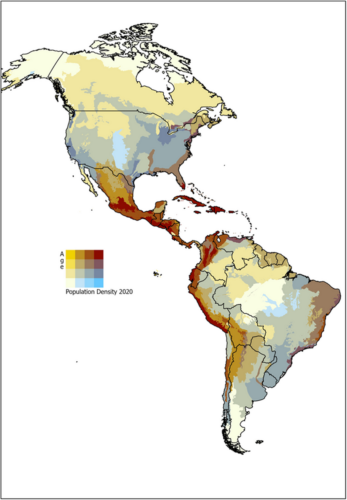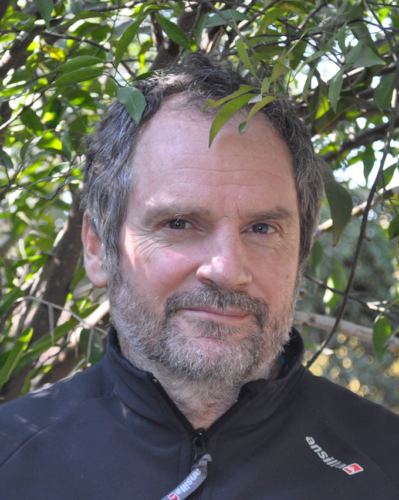Spotlight on LMICs – Looking Back to Plan Forward: The Long-term Ecological Impact of European Settlement in the Americas
Analyzing historical data enables us to identify long-term trends and patterns. By recognizing how certain phenomena have evolved over time, we can make more accurate predictions about future developments and anticipate potential challenges or opportunities. One of the main social-ecological events of human history has been the arrival of Europeans to the Americas. The most direct and significant impact of their arrival came when the Europeans established settlements with associated land uses.
 Dr. H. Ricardo Grau et al. developed a spatially explicit model of European colonization timing for the Americas based on the foundation dates of cities. The authors took it a step further and combined the spatial model with a map of ecoregions and current human populations. Their analysis discerned areas with different combinations of colonization history and present-day human impact. Their approach provides an approximation to the history of European colonization which may be considered a proxy of globalization with the following outputs:
Dr. H. Ricardo Grau et al. developed a spatially explicit model of European colonization timing for the Americas based on the foundation dates of cities. The authors took it a step further and combined the spatial model with a map of ecoregions and current human populations. Their analysis discerned areas with different combinations of colonization history and present-day human impact. Their approach provides an approximation to the history of European colonization which may be considered a proxy of globalization with the following outputs:
- Improves the understanding of globalization-driven human impacts in the Americas
- Provides temporal and spatial definition of a key socio-ecological process largely driven by the European colonization
- Outlines the main ecological effects affected including disturbance history, grazing and herbivory patterns, biotic community structure and composition, and spread of exotic plants and animals.
This study provides a new perspective on the social-ecological history of the Americas and provides insight on the consequences of this for the ecology of the Anthropocene, and for conservation policies in the new world.
 Dr. Grau is a part of the Natural Assets Knowledge Action Network of Future Earth. He has done research on the dynamics of territorial changes in relation to socioeconomic modernization processes in Latin America, including urbanization, globalization and tele coupling with other regions. His research is multidisciplinary, relying on both introduced species, tropics, satellite imagery and environmental protection. Dr. Grau is a Principal Investigator of CONICET and Professor of Landscape and Regional Ecology in the National University of Tucumán, Argentina.
Dr. Grau is a part of the Natural Assets Knowledge Action Network of Future Earth. He has done research on the dynamics of territorial changes in relation to socioeconomic modernization processes in Latin America, including urbanization, globalization and tele coupling with other regions. His research is multidisciplinary, relying on both introduced species, tropics, satellite imagery and environmental protection. Dr. Grau is a Principal Investigator of CONICET and Professor of Landscape and Regional Ecology in the National University of Tucumán, Argentina.
Grau, H.R., Foguet, J. & Baldi, G. A spatially explicit model of European colonization timing on the American ecosystems based on foundation dates of cities. GeoJournal 89, 111 (2024). https://doi.org/10.1007/s10708-024-11131-5
Do you have a recent publication within the Global South that you would like spotlighted? Share your publication with Makyba Charles-Ayinde at Makyba.charles-ayinde@futureearth.org for a possible feature!
DATE
June 26, 2024AUTHOR
Makyba Charles-AyindeSHARE WITH YOUR NETWORK
RELATED POSTS
Spotlight on LMICs – Getting Up To Speed on the Pacific Islands: A Plan for Resilience
Spotlight on LMICs – Tired of Breathing in Pollutants? Time for Better Fuel Economy and Vehicle Standards
Spotlight on LMICs – The Future’s Juggernaut: Positioning Research as Anchors for Environmental Health